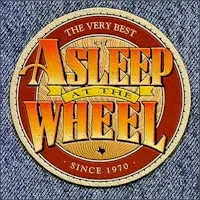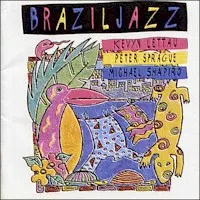Time: 48:40
Size: 111.4 MB
Styles: Jazz-blues guitar
Year: 2008
Art: Front
[4:54] 1. Zydeco Boogaloo
[4:37] 2. The Promised Land
[4:30] 3. One For The Road
[4:19] 4. Grand Lake Shuffle
[4:56] 5. E.S.B. Blues
[6:12] 6. The Chicken
[4:22] 7. Need Your Love So Bad
[4:31] 8. Rock Candy
[7:09] 9. Body And Soul
[3:04] 10. Our Miss Brooks
n his own description, Danny Caron sees How Sweet It Is as an extension of Good Hands, and in many ways it is. But to my ears while Good Hands is about incredible guitar work from an incredible guitarist, How Sweet It Is is about musical choices. Don’t get me wrong, there is still plenty of great guitar work here but the choices make How Sweet It Is the great CD it is.
The first choice, naturally enough, is the music. While mostly slow blues and stylized jazz, there are even a couple of different flavors of zydeco, the jumping Zydeco Boogoloo and the slow, country roots One For The Road. As his bio indicates, this is the range of music Danny has been playing his whole life, and continues to play. All the numbers are beautifully arranged.
The next choice is the musicians. While all the players on this CD are noteworthy, to me the keyboard players deserve special mention: Wayne De La Cruz and Jimmy Pugh driving B-3 and John R. Burr on piano. It doesn’t get better at providing a counterpoint to Caron’s guitar. And though he only appears on a couple of tracks, Jeff Ervin delivers some truly powerful sax.
Did I mention vocals? The late Charles Brown is here; so smooth, like silk, forever. And Barbara Morrison, playful and earthy, like hearing the blues you always knew but never knew you missed quite so much.
For what is primarily an instrumental album, the several vocals on this CD are, on their own merit, worth the price of admission.
In short, How Sweet It Is is a great musical choice. Check it out. ~Karl Cishek
The first choice, naturally enough, is the music. While mostly slow blues and stylized jazz, there are even a couple of different flavors of zydeco, the jumping Zydeco Boogoloo and the slow, country roots One For The Road. As his bio indicates, this is the range of music Danny has been playing his whole life, and continues to play. All the numbers are beautifully arranged.
The next choice is the musicians. While all the players on this CD are noteworthy, to me the keyboard players deserve special mention: Wayne De La Cruz and Jimmy Pugh driving B-3 and John R. Burr on piano. It doesn’t get better at providing a counterpoint to Caron’s guitar. And though he only appears on a couple of tracks, Jeff Ervin delivers some truly powerful sax.
Did I mention vocals? The late Charles Brown is here; so smooth, like silk, forever. And Barbara Morrison, playful and earthy, like hearing the blues you always knew but never knew you missed quite so much.
For what is primarily an instrumental album, the several vocals on this CD are, on their own merit, worth the price of admission.
In short, How Sweet It Is is a great musical choice. Check it out. ~Karl Cishek
How Sweet It Is




















